The best TV shows of 2020 – from Normal People to David Tennant's Des
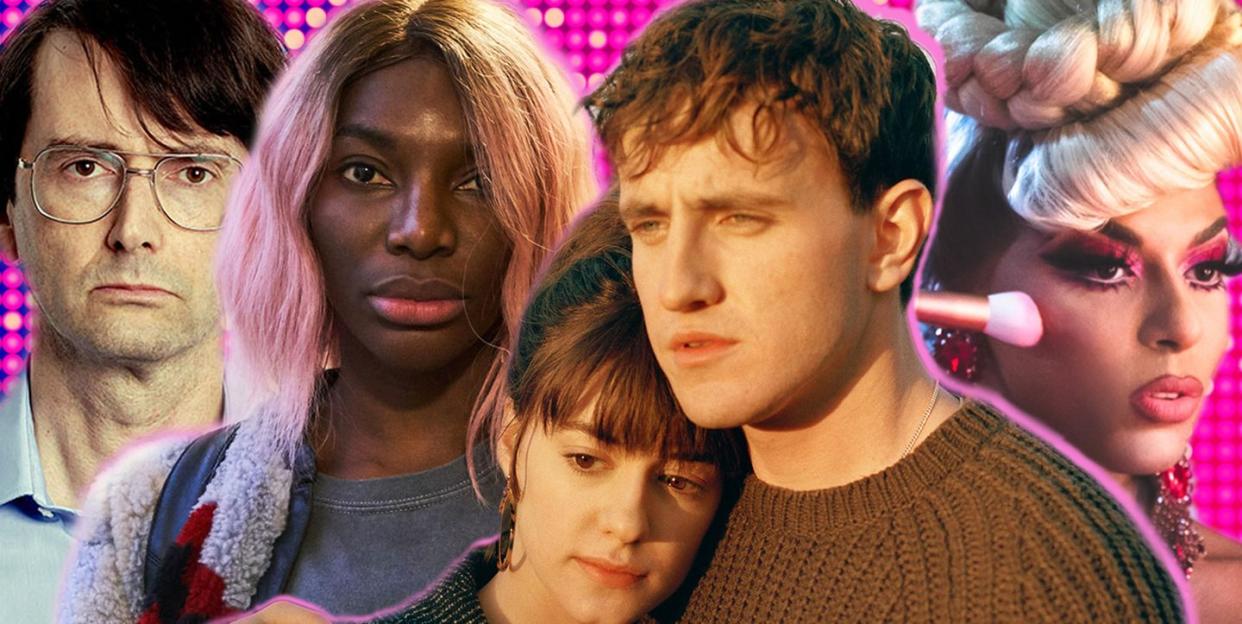
2020 has been many things, and most of them not good. But seeing us through it all, it has at least been a sterling year for television.
When it came to narrowing down a list of shows to champion, we had our work cut out.
The Haunting of Bly Manor, Steve McQueen's Small Axe, Midnight Gospel, This Country and Sex Education (yes, believe it or not, season two was this year) all deserved a mention too. But here, Digital Spy's TV team has hand-picked what resonated with them the most, in a year like no other.
I May Destroy You
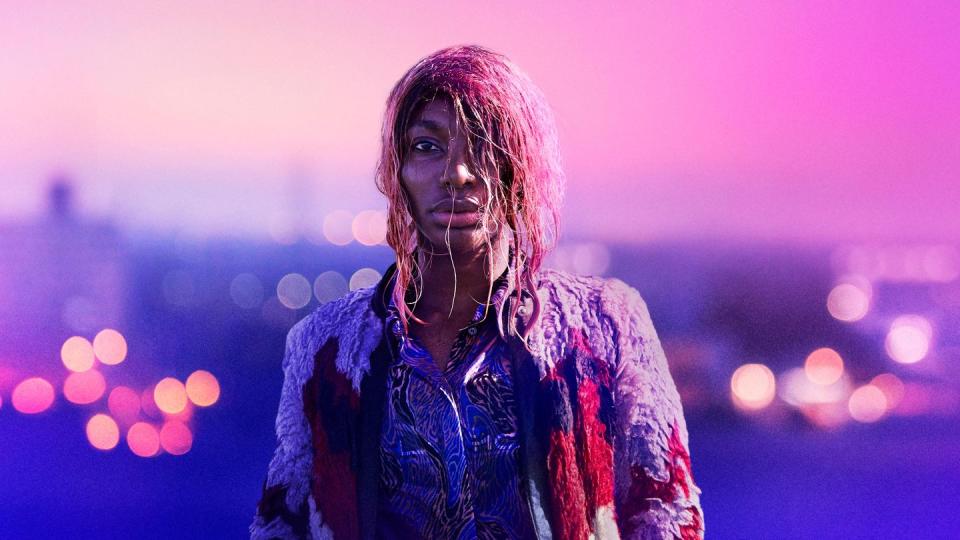
By Laura Jane Turner, TV Editor
To my mind, there are three markers that set apart truly great television. They are pieces of storytelling that drive conversation, change the viewer irrevocably and stay with you long after the end credits have rolled.
Each of my personal 2020 picks fills at least one of these criteria, but Michaela Coel's formidable series, I May Destroy You, achieved all of this and more.
Told through its protagonist Arabella (played by the show's creator) and her close friends Terry (Weruche Opia) and Kwame (Paapa Essiedu), it is at its core a tale of consent and the long-lasting effects of trauma. You'd think that this would be commendable enough on its own – and don't get me wrong, it certainly would have been – but Coel's scriptwriting also pulled in themes of systemic racism and the intersectionality of Black queerness.
By existing very much in the grey area, I May Destroy You forced every viewer to reflect on their own experiences of sex and relationships, interrogating our very understanding of what it means to give someone entry to our most private and vulnerable moments. Its final act, and perhaps the most powerful 34 minutes of television I've experienced this year, delivered a multilayered final episode that still continues to hang over me.
We're Here
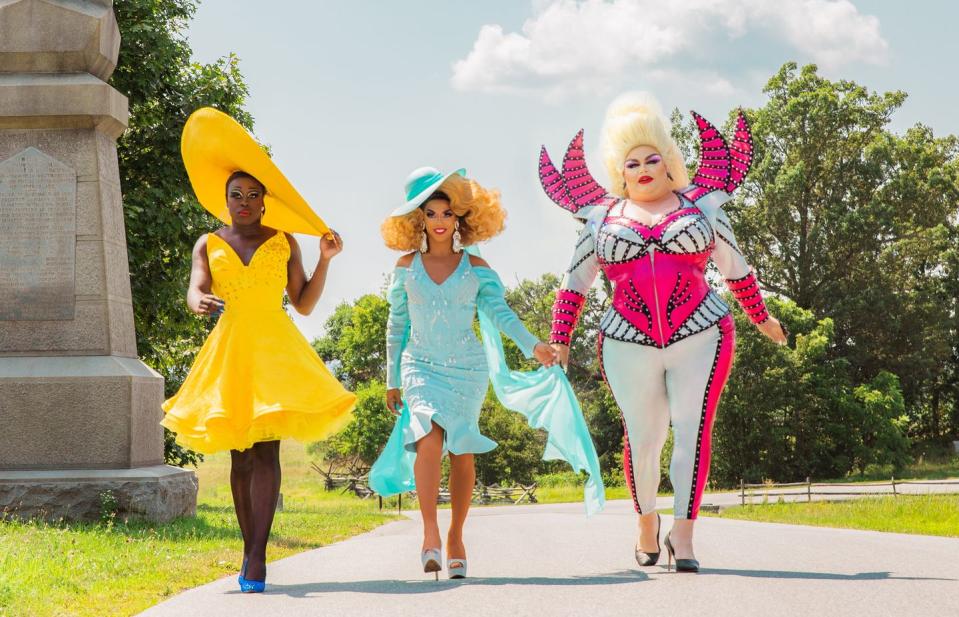
By David Opie, Deputy TV Editor
"If you can't love yourself, how in the hell you gonna love somebody else?" RuPaul's Drag Race, and this mantra in particular, have done more for queer people than perhaps any other show in the last decade, but as Shangela told me earlier this year, "It takes so many different walks of life to comprise this quilt of our community."
Building on this message of acceptance, We're Here pushes the conversation further by reframing drag as something beautiful for all, regardless of who you are or where you come from. Drag kings, trans people and straight allies alike are all welcome on this show, representing a more realistic and authentic depiction of the LGBTQ+ community as a whole.
Together, Shangela, Eureka and Bob the Drag Queen bring genuine hope to small town communities in America, and by extension, everyone watching the world over. In 2020, it was more important than ever to maintain a sense of community, particularly among those who feel different or vulnerable in mainstream society. Watching these three drag legends make this possible filled my heart with joy in ways my younger self could have only dreamed of.
And isn't that the whole point of We're Here in the first place? Not just to announce each queen's arrival in town, but to cement our existence as a community, reminding queer people everywhere that they're not alone and that they too are worthy of love?
Normal People
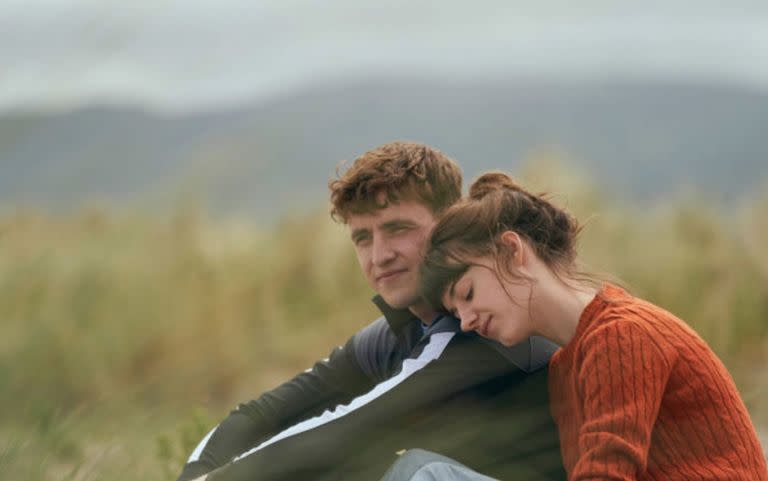
By Abby Robinson, TV Writer
Words cannot capture the love I have for Normal People.
"Extraordinary", "magnificent" and "sublime" don't cut it. "Breathtaking" and "remarkable" simply don't come close. Sally Rooney's source material had already achieved God-tier status, making the challenge of lifting Marianne and Connell's relationship from page to screen an even greater endeavour. But the series seamlessly tapped into the very essence of the book, bathing their love story, one that we've seen told myriad times across the ages, in a new glow.
Daisy Edgar-Jones and Paul Mescal portrayed their intimacy with such tenderness, heart and authenticity that there was never any doubt in anyone's mind that what unfolded before us was as real as you and I. Even now, more than seven months after I lost myself in their world, a great wave of emotion washes over me when I think about the two of them wrapped up in one another. Normal People might have ended, but Marianne and Connell are forever.
BoJack Horseman
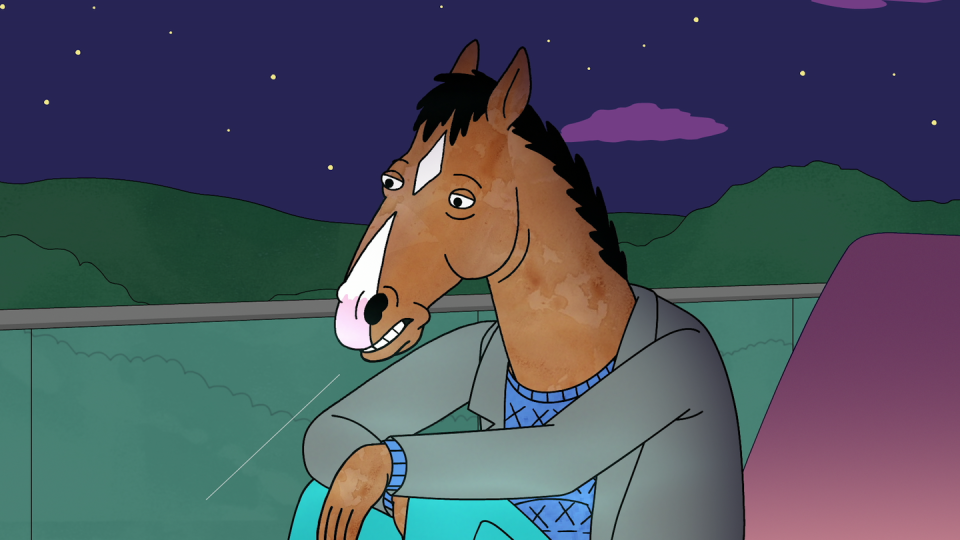
By Laura Jane Turner, TV Editor
Never before has a show quite so masterfully depicted depression, the destructiveness of addiction, dementia, toxic relationships and the insidiousness of rich, powerful male privilege – and it's a cartoon about a talking horse.
Despite his erratic behaviour, former sitcom legend BoJack is the central figure around which all of the other characters orbit. Far from the hero, you'd be hard-pressed to like him (let alone root for him) 99% of the time – but this is what sets the show apart, making it ripe for profound and existential commentary (while still, at times, providing a laugh or two).
The climax of this six-year running show was delivered at the start of this year and, while it divided, I thought it was the perfect way to see it off. Choosing to forgo any attempt at redemption (which would have been misguided at best) or happily ever afters, BoJack Horseman ended on a more sombre note, with a final conversation between BoJack and Diane that finally severed the chord that held together their toxically co-dependent friendship.
"Life's a bitch, and then you die." What you choose to take away from that sobering truth, is down to you.
"Sometimes, life's a bitch and then you keep living."
Mrs America
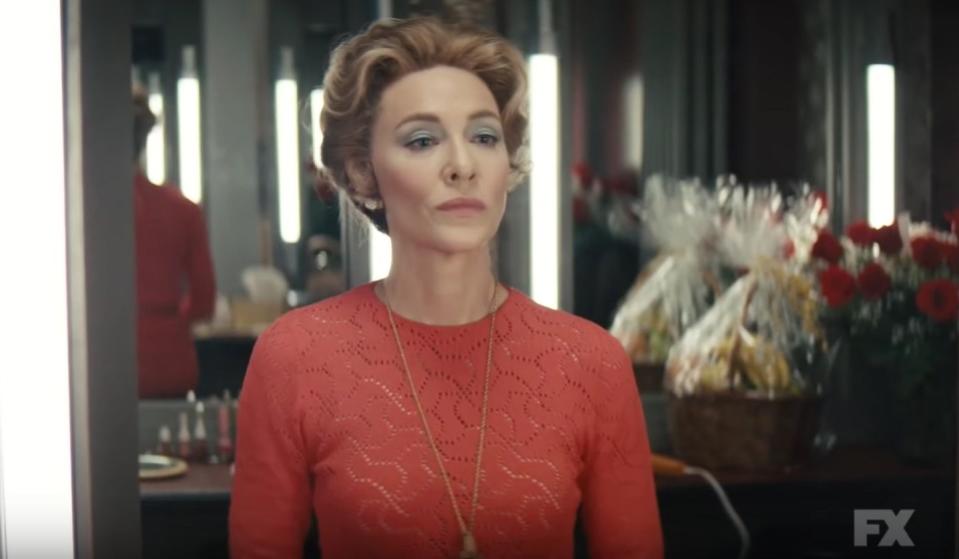
By Abby Robinson, TV Writer
Before Mrs America dazzled us with its brilliance, the cast list promised something truly spectacular. Having Cate Blanchett, Uzo Aduba, Rose Byrne, Elizabeth Banks, Sarah Paulson and countless other giants of the screen on your books is a sign that you're not here to play, and clearly, given the fact that I'm writing about it here, the series did not disappoint.
Viewers were treated to a rich, densely packed narrative which sketched out the arguments for and against the ratification of America's Equal Rights Amendment, which sounds like a slog, and it could well have been in the wrong hands. But Dahvi Waller expertly laced the competing voices into a streamlined, relentlessly engaging feast that carried you on its currents from start to finish.
By choosing to spotlight a different key player in each of its episodes, the talents of the ensemble were never squandered or lost in the fray, which is no small feat considering the historical weight of the powerhouse house women that it juggles. Waller and her team succeeded in ensuring that there was no dogfight for dominance in a script that didn't waste a single beat, which is ironic given the amount of verbal sparring in the series. Mrs America was a wildly ambitious undertaking, but boy, did they deliver.
She-Ra and the Princesses of Power
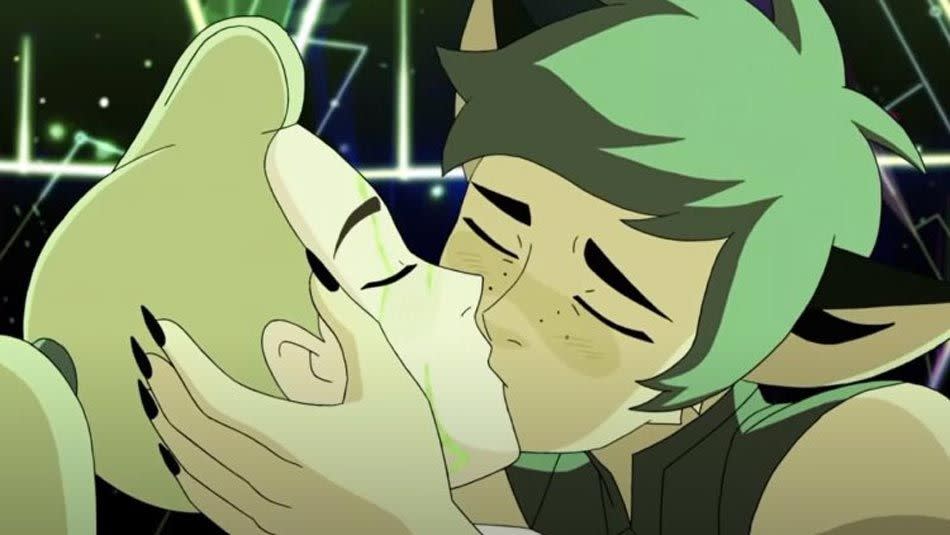
By David Opie, Deputy TV Editor
Growing up gay in the '90s wasn't easy. Section 28 ensured that no-one at school could openly discuss queerness — that is, aside from the cruel taunts other kids would throw my way. I turned to fantasy worlds for an escape, but even there, in my safest place, there weren't many LGBTQ+ characters to speak of, and those that did exist tended to fall into the usual harmful clichés.
Things are mostly getting better, both in terms of real-world politics and onscreen representation, so thankfully, most of that is behind me now. But still, not seeing yourself reflected in the stories you love can do something to a person, and it wasn't until I watched the very last episode of She-Ra that the depth of this became apparent to me.
After five seasons of hints and subtext, Adora and Catra kissed and openly declared their love for each other in the show's final moments. This wasn't the first time I've seen queer characters in animation, or even She-Ra for that matter, which already featured a beautiful love story shared by Netossa and Spinnerella. But this was the first time I had seen two lead characters enjoy queer domestic bliss so openly and without fear of reprisal.
Hearing Adora and Catra say those three words – words younger me never imagined he would hear – moved me in ways no other story ever has. I didn't even realise how much I still needed to be validated like this until that very moment. Without even realising it, I had long settled for stories with ambiguous queer undertones. And now, for the first time ever, the child in me felt hopeful for a happy ending of his own, to finally be the hero of his own story.
It's like showrunner Noelle Stevenson told me earlier this year: "It's more than just normalising, it's an attempt to create a better world." And with its fifth and final season, She-Ra has managed to do exactly that.
The Last Dance
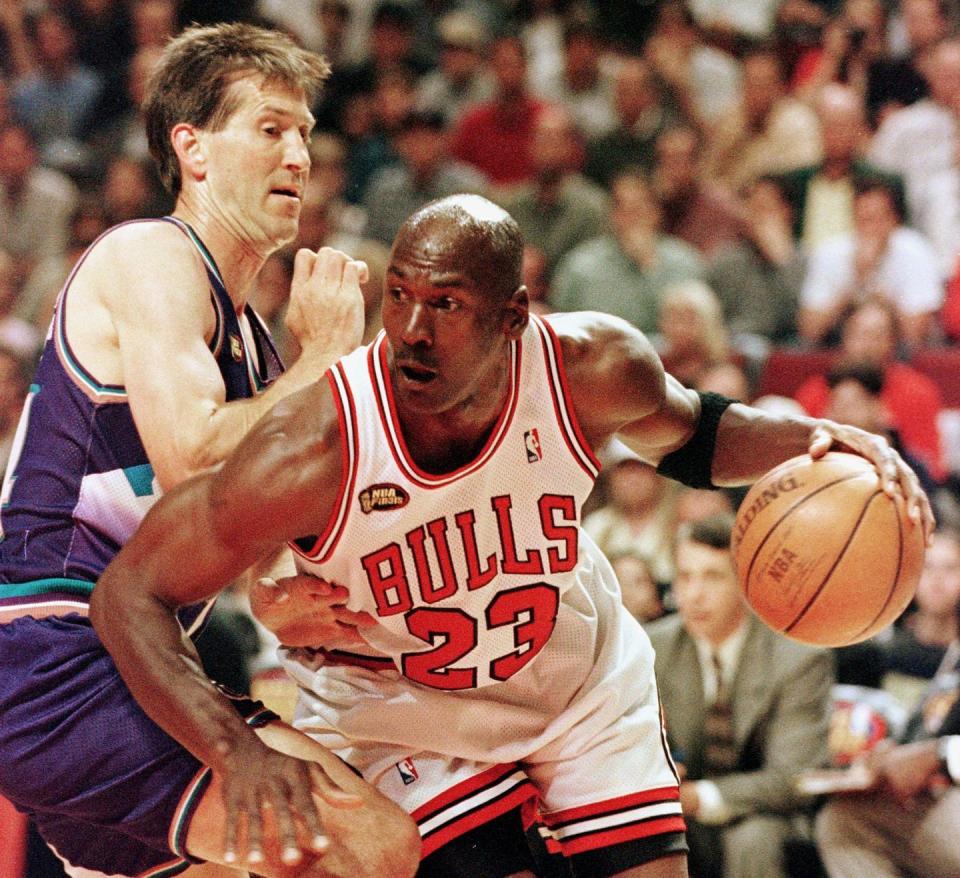
By Abby Robinson, TV Writer
If you'd have told me that a series about basketball would be in my top three shows of the year, I would have laughed you off the proverbial court. It's never occupied space in my life, ergo the rules and regulations, plus its history and the key figures who shaped it are a mystery to me. But that's no barrier to lapping up every second of the The Last Dance.
It charts the story of NBA superstar Michael Jordan, chronicling his rise to the top and the golden peak of his career during his time at the Chicago Bulls in the 1990s. The extent of Jordan's editorial control was used as a stick to beat it with by some, but all of that fell by the wayside when Kool Moe Dee's 'How Ya Like Me Now' kicked in as we were treated to a montage of him slam-dunking and pirouetting across the court, dancing around his competitors like they were made of cardboard.
Whatever your opinions of Jordan, the beauty, intelligence, power and sheer brilliance of his game was an undeniably compelling force, impossible to tear yourself away from. It's the thread that runs throughout, weaving in amongst the big egos, bitter rivalries and some ~interesting~ '90s fashion, making The Last Dance a truly satisfying watch.
Des
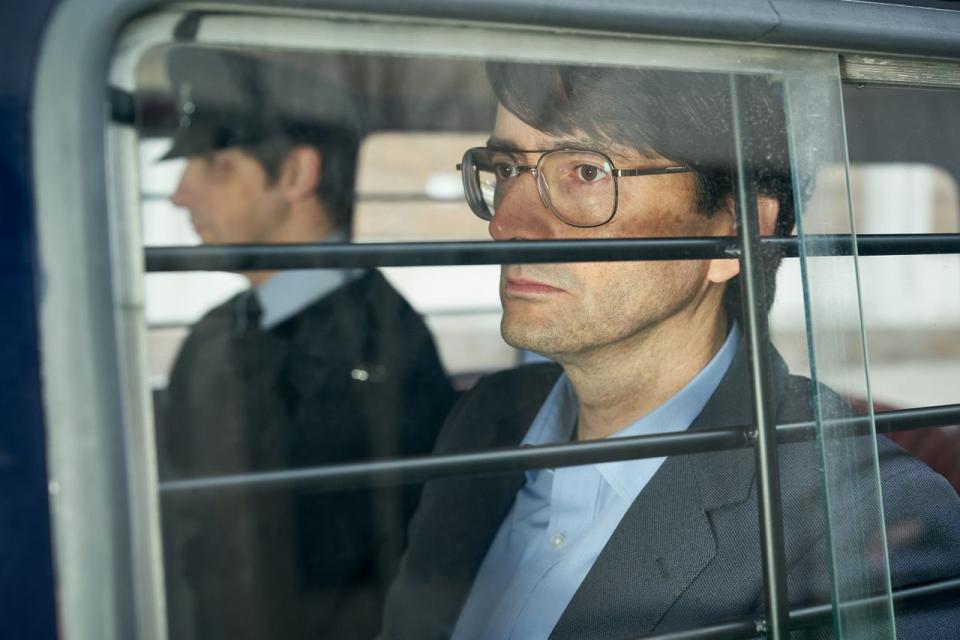
By Laura Jane Turner, TV Editor
Top-level casting and mesmerising storytelling collide in this true-crime dramatisation, which sent shivers through audiences in September.
Once again bringing Dennis Nilsen (embodied to eery precision by David Tennant in ITV's three-part series) into public consciousness, the show re-framed what was once sensationalised by tabloids. Using Brian Masters' biography as source material, the tale was flipped into a fascinating study into the darkest abyss of a human mind.
With big-budget powerhouses like Mindhunter raising the bar, it's hard to come at this genre with something fresh – but Des was triumphant, capturing the imaginations of viewers while still remaining sensitive and responsible to its subject matter.
More importantly, it had something to say about socio-economic issues and the ignorant attitudes of the time – a message that, sadly, still holds relevance today.
The Magicians
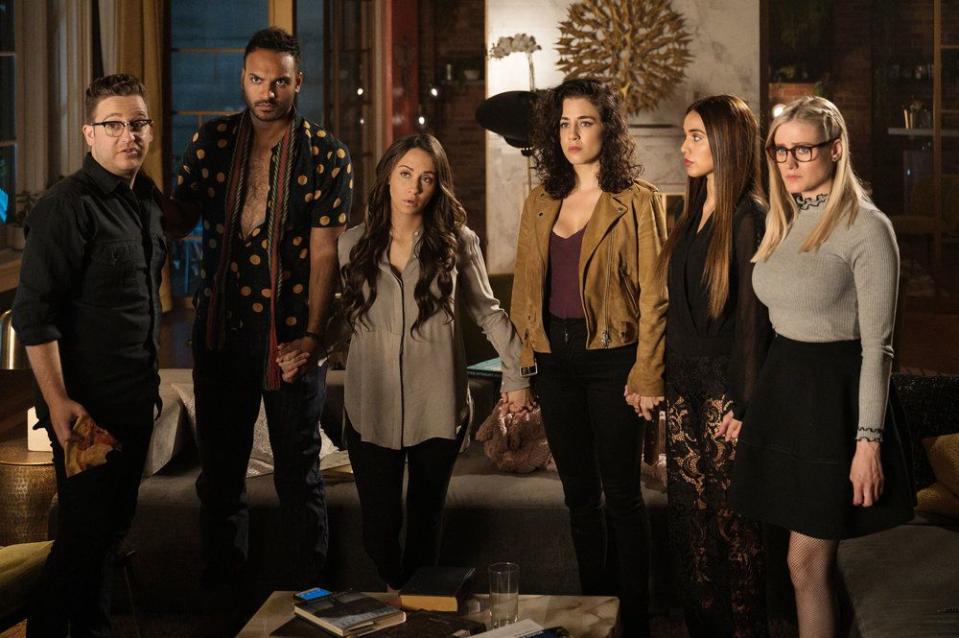
By David Opie, Deputy TV Editor
Magic is unpredictable, that's the whole point of it, so no-one should have been surprised when The Magicians evolved into something so much more than just "Harry Potter goes to uni". But even then, few could have predicted what would happen over the next five seasons.
Magic semen, impromptu Les Miserables karaoke and rabbits who say "eat my ass" are just a tiny handful of the most surprising things that happened on this show. Season four ended with the most shocking moment yet, though, with the death of Quentin, The Magician's main protagonist.
Through a seemingly constant stream of tears, I wondered how The Magicians could survive without its "hero", but survive it did, by leaning even deeper into the eccentricities of TV's most human ensemble.
Buffy – a show which left its own indelible mark on The Magicians – once said "The hardest thing in this world is to live in it," and that's something the likes of Eliot and Margo know all too well. Across five seasons, The Magicians has tackled everything from depression, sexual assault, death and addiction with a devastatingly fun and yet excruciatingly painful outlook that says more about the human condition than you would ever expect from a genre show on Syfy.
And now, after breaking the moon and breaking out of unbearable time loops, the fifth and final season ended with the show's biggest surprise yet – a happy ending (of sorts). Yes, the pain that comes with living in this world is something we'll never truly be able to overcome, but The Magicians reminded me that the most important thing is that we try, and that we do so with a smile on our faces and hope in our hearts.
Digital Spy has launched its first-ever digital magazine with exclusive features, interviews, and videos. Access the latest edition with a 1-month free trial, only on Apple News+.
Interested in Digital Spy's weekly newsletter? Sign up to get it sent straight to your inbox – and don't forget to join our Watch This Facebook Group for daily TV recommendations and discussions with other readers.
You Might Also Like


